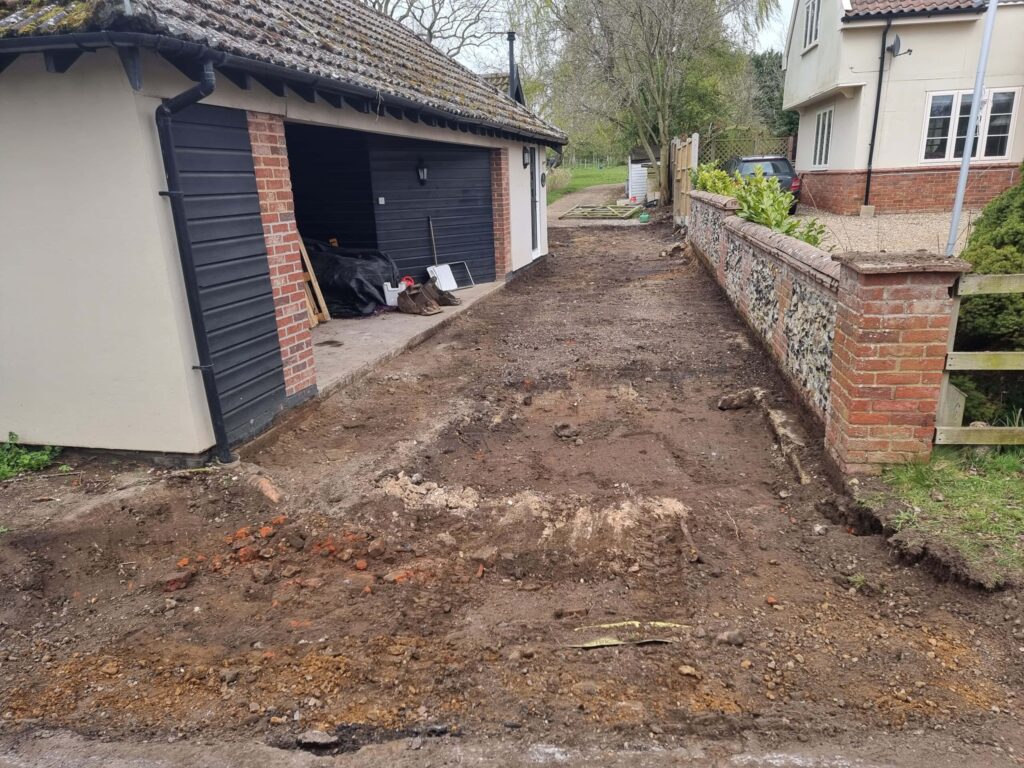The Environmental Benefits of Using Block Paving in Commercial Settings
Introduction: At Harleston Driveway Installers, we are committed to providing top-quality paving solutions and promoting environmentally friendly practices. Block paving is popular for commercial settings due to its durability, aesthetic appeal, and versatility. However, block paving offers several significant environmental advantages beyond these practical benefits. This blog post’ll explore how block paving can contribute to a more sustainable and eco-friendly commercial environment.
1. Improved Water Management
One of the standout environmental benefits of block paving is its impact on water management. Traditional impervious surfaces, such as asphalt or concrete, can lead to excessive surface runoff, often resulting in flooding and water pollution. On the other hand, block paving is designed with a porous structure that allows rainwater to pass through the gaps between the blocks. This helps to:
- Reduce Surface Runoff: Block paving minimises the volume of runoff by allowing water to seep through, reducing the risk of localised flooding.
- Recharge Groundwater: The water that seeps through the paving can recharge groundwater supplies, contributing to the overall health of the local aquifer.
- Filter Pollutants: As rainwater passes through the block paving, it can be filtered naturally, removing pollutants before reaching the water table.
2. Reduction in Urban Heat Island Effect
Urban heat islands (UHIs) occur when urban areas experience significantly warmer temperatures than their rural surroundings due to human activities and the extensive use of impervious surfaces. This effect can lead to increased energy consumption for cooling and contribute to higher levels of air pollution. Block paving can help mitigate the UHI effect in several ways:
- Reflective Properties: Many block paving options come with reflective surfaces that reduce heat absorption, helping to keep surrounding areas cooler.
- Thermal Mass: Block paving’s thermal mass can absorb and slowly release heat, balancing temperature fluctuations and reducing the immediate impact of heat buildup.
3. Longevity and Low Maintenance
Sustainability isn’t just about the immediate environmental impact; it’s also about the long-term durability and maintenance of materials. Block paving offers:
- Durability: Block paving is known for its strength and longevity. A well-maintained block paving surface can last for decades, reducing the need for frequent replacements and the associated environmental impact of producing and disposing of materials.
- Ease of Repair: If individual blocks become damaged, they can be easily replaced without resurfacing the entire area. This reduces waste and the need for large-scale repairs.
4. Reduction in Carbon Footprint
The production and installation of paving materials contribute to a structure’s overall carbon footprint. Block paving can help reduce this footprint in the following ways:
- Recycled Materials: Many block paving options are made from recycled materials, such as reclaimed concrete or crushed bricks, reducing the demand for new raw materials.
- Energy Efficiency: The installation process for block paving generally requires less energy than other paving methods, which helps lower greenhouse gas emissions associated with the construction process.
5. Enhancement of Green Spaces
In commercial settings, the aesthetic appeal of block paving can complement green spaces, such as landscaped areas and gardens. This integration helps:
- Promote Biodiversity: By incorporating green spaces within paved areas, businesses can support local wildlife and plant life, creating a more balanced and eco-friendly environment.
- Improve Aesthetic Appeal: Well-designed block paving can enhance commercial properties’ visual appeal, encourage the use of green space, and promote environmental consciousness among employees and visitors.
6. Reusability and Recycling
Block paving is highly versatile and can be reused or recycled at the end of its life cycle:
- Reusability: In many cases, blocks can be lifted and relaid in a new pattern or location, extending their lifespan and reducing waste.
- Recycling: At the end of their life cycle, block paving materials can often be recycled into new products or other construction materials, closing the loop in the material lifecycle.
Conclusion: Block paving offers a range of environmental benefits that make it an excellent choice for commercial settings. Block paving contributes to a more sustainable and eco-friendly environment, from improving water management and reducing the urban heat island effect to enhancing green spaces and reducing carbon footprints.
Call us on: 01379 778 393
Click here to find out more about Harleston Driveway Installers
Click here to complete our contact form and see how we can help you with your driveway needs.

